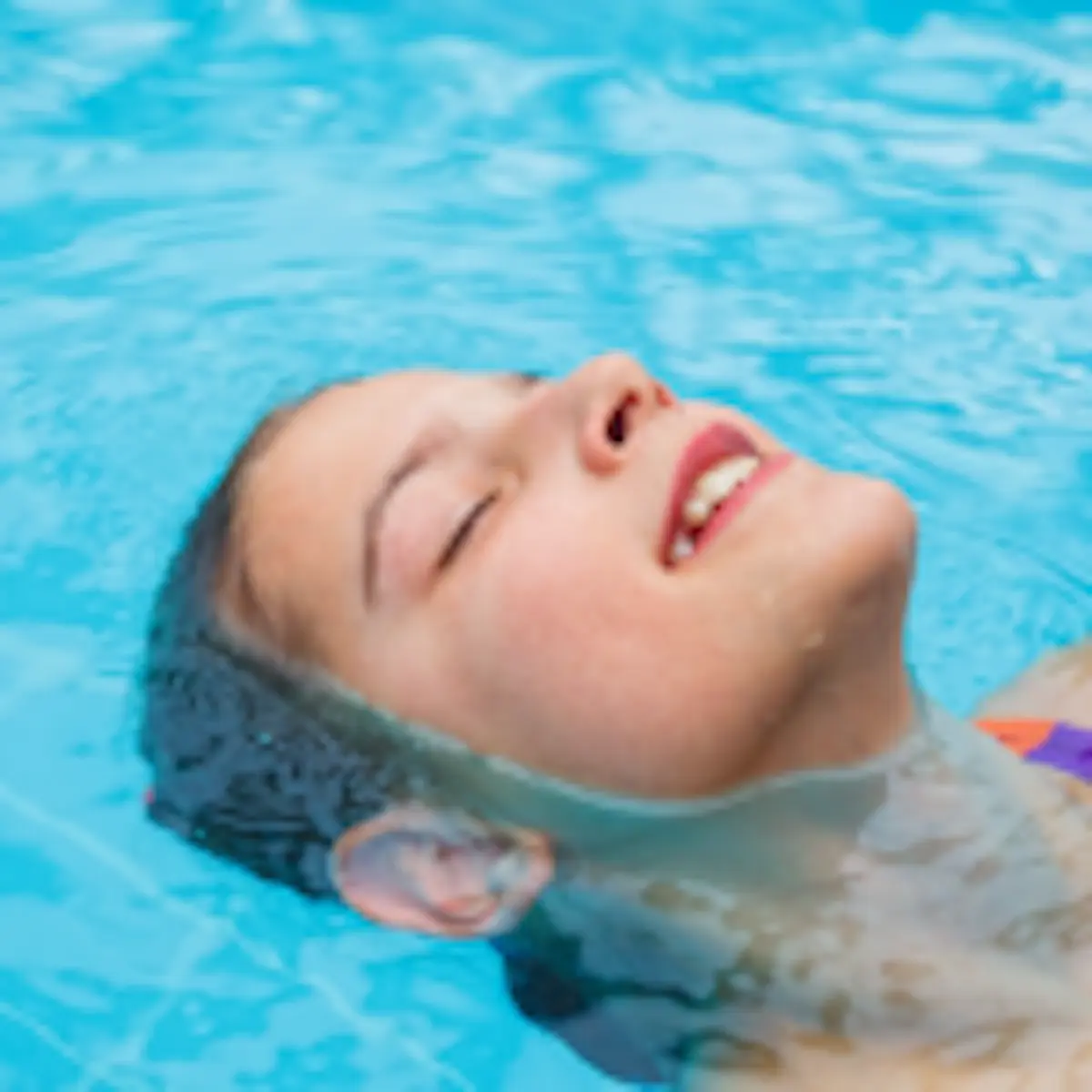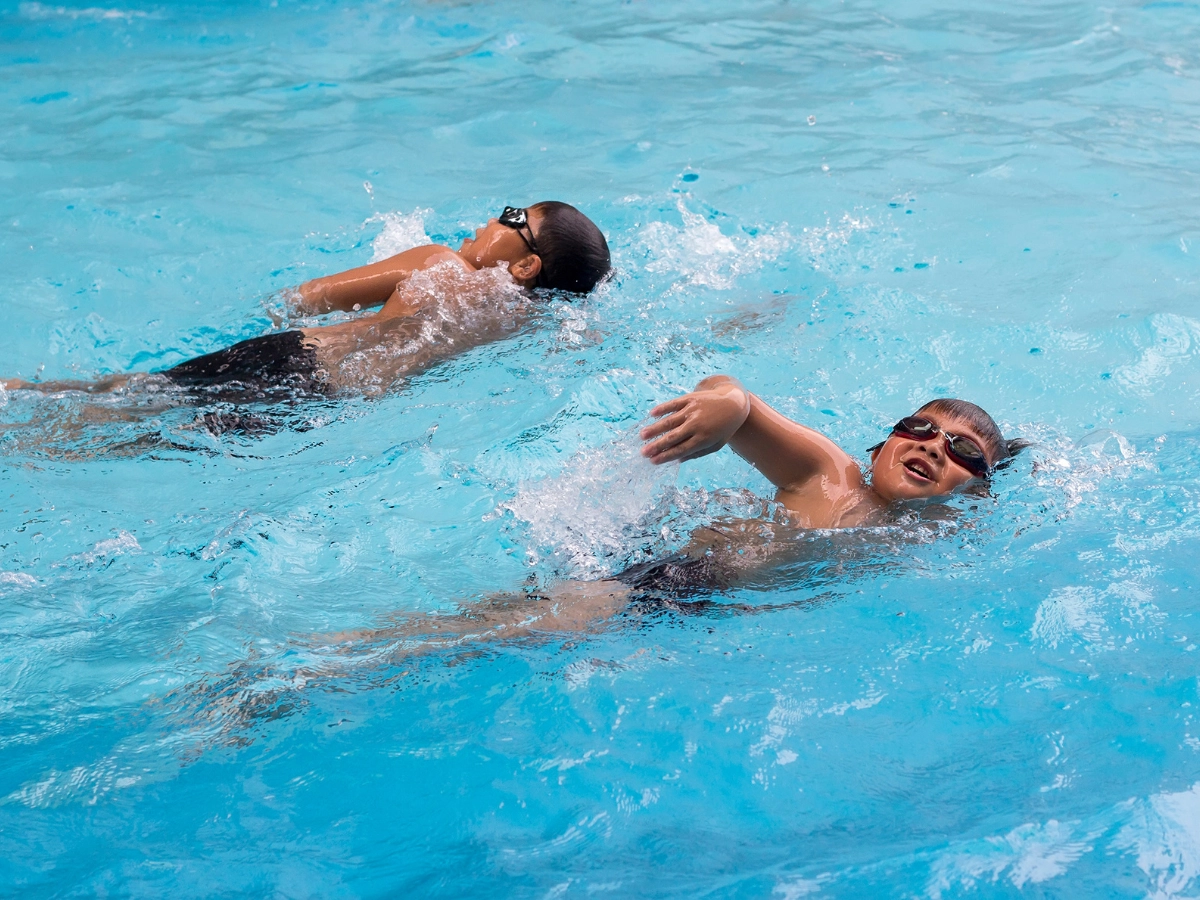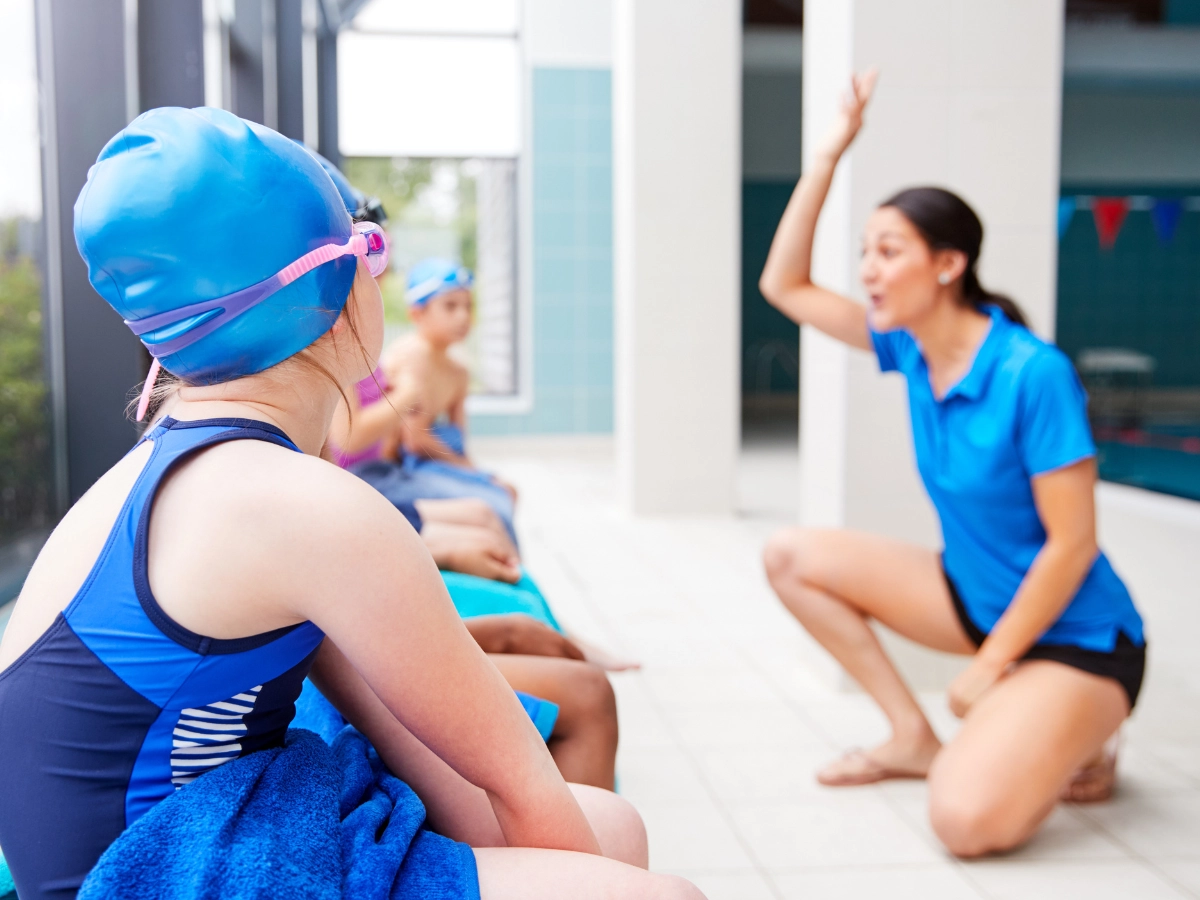Skin and hair can present challenges for everyone in the winter, but when it comes to swimmers there are many things at play that can cause itching and irritation. In order to address the root cause and have healthy and happy skin and hair, here are 5 important questions to ask.
Why do swimmers get dry skin and hair?
Swimming is one of the most challenging sports for the skin and hair. Your skin has a protective layer of fats that lubricate the skin and make it semi-waterproof. Sebaceous glands are also found in hair follicles and are microscopic exocrine glands in the skin that secrete this oily or waxy matter called sebum. These fats or lipids are highly developed in mammals that live in the water, such as beavers, and provide them with constant protection from water’s harmful effects. For humans, prolonged water contact can remove this layer of fats and damage your protective skin barrier. Once damaged, the skin barrier begins to renew itself automatically but flaking, itching, stinging and burning can be part of the healing process.
What is the effect of chlorine on the skin and hair?
In addition to water damage, swimmers are also exposed to chlorine and other pool chemicals. These chemicals are vital to preventing skin infections, such as impetigo from bacteria, warts from viruses, and athlete’s foot from fungus. However, chlorine can also accelerate the removal of fats from your skin and hair and impact your natural barriers.
The chlorine in your pool’s water can dry out your skin and make it feel tight and itchy as the chlorine strips your skin of its protective layer of sebum. If you have sensitive skin, you might even get irritation or a rash from the effects of chlorine. If you have a skin condition like eczema, chlorine can aggravate it further.
Chlorine is also very drying for your hair. When it becomes wet with chlorinated water, the hair shafts absorb the chlorine. This strips your hair of its natural lubricant (sebum) and causes damage. Since you spend lots of time in chlorinated water, repeated drying can also cause your hair’s protective cuticles to crack which leads to split ends and frequent breaking of hair strands.
Green hair is a pretty common phenomenon especially if you have light-colored hair and spend lots of time in chlorinated water. The greenish color isn’t caused by the chlorine itself. It’s actually caused by chlorine’s interaction with copper pipes and other metals. The chlorine causes small amounts of metal to enter the water and tint the hair.
What can swimmers do to prevent dry skin and hair?
Before Swimming
You may think you only need to “treat” after swimming. But, your pre-swim treatment is just as important to preventing damage to your skin and hair.
Protect your skin by applying oil or lotion before swimming. Many types of sunscreens contain oils that protect your skin from water, especially waterproof sunscreen formulated for swimming or heavy physical activity.
Before you swim, get your hair wet with clean water. Just like most pools like you to wash off before you enter, your hair will appreciate it too. This helps keep your hair from absorbing the chlorine. You can also coat your hair and scalp with conditioner or oil if you want another line of defense.
During Swimming
Use a swim cap to help protect your hair from chlorine. While it may not keep your hair completely dry, a swim cap will help minimize the amount of water and chemicals that come in contact with it.
After Swimming
Swimmers should rinse the skin and hair immediately after swimming and, if possible, bathe with a gentle cleanser and give your hair a thorough shampooing. If you are prone to green hair, use a clarifying shampoo to rid your hair of the chemicals and color.
When showering, your skin will benefit more from rinsing and gentle bathing to remove the chlorine smell from the skin and hair and prevent excessive chlorine irritation and damage. Many swimmers joke that chlorine is their natural perfume but if a stronger-than-normal chlorine smell is left on the skin after swimming, your pool’s chemical balance may need to be checked.
Consider moisturizing morning and evening with a ceramide-containing cream liberally applied to all body areas – especially the arms and legs where oil production is minimal. There are plenty of good over-the-counter options available for typical moisturizing needs. If you find that over-the-counter moisturizers aren’t helping, prescription remedies may be worth talking to your primary care doctor about.
What should swimmers do if they develop red, itchy skin?
If your skin becomes red and itchy, it may be a sign of excessively dry skin – a condition known as eczema. Very mild eczema may be treated with over-the-counter 1% hydrocortisone cream applied twice daily. But if your condition doesn’t improve in 2-3 days with this remedy, you may need to see a dermatologist for guidance.
Winterize with a Diligent Regimen
During winter, it’s even more important to be strict with your skin and hair cleansing and moisturizing regimen. Pay close attention to your skin and hair and take action to help the replenishing and healing processes take place. Act quickly if your condition needs something outside of your regimen – even seeing a dermatologist. Ignoring something small can allow a condition to develop that could disrupt your swimming!
To help you maintain your regimen as winter approaches, keep these 8 skin/hair care tips top of mind:
- Drink plenty of water while swimming.
- Showers are important. Spend several minutes in the shower before you ever jump in the pool to ensure that your skin and hair are thoroughly washed with fresh water and no chlorine binds to your skin’s surface. If you’re at a daylong event, shower between events so that chlorine doesn’t dry on your skin or hair.
- Rub olive, coconut or baby oil through your hair with your hands.
- Cleanse your skin and your hair thoroughly after your pool time. Use moisturizer and conditioner after cleansing to rehydrate.
- Wash swimsuits thoroughly as soon as possible after swimming. Not only will they last longer but suits that have dried chlorine in them can irritate your skin.
- Purchase shampoos that are designed for swimmers and use them regularly. Be kind to your hair by using lower settings on your blow dryer and a wide-tooth comb instead of a brush.
- Pay particular care to any areas of your skin where there is chaffing or rubbing. These places are particularly susceptible to greater irritation by chlorine. Protect these areas with a layer of Vaseline.
- Apply moisturizers that rehydrate the skin, keeping it soft and in good condition. (i.e. Aqueous Cream such as Aquaphor or Eucerin, E45 dermatological cream, or Dermol which is sometimes prescribed for skin irritations)
- Treat very dry eczema patches with 0.5% hydrocortisone available without prescription. This should clear up the patch without the risk of atrophy.














